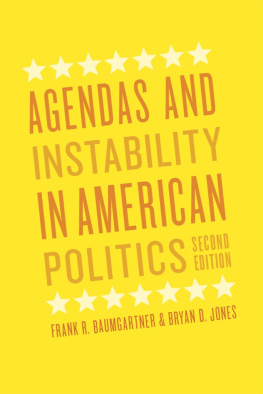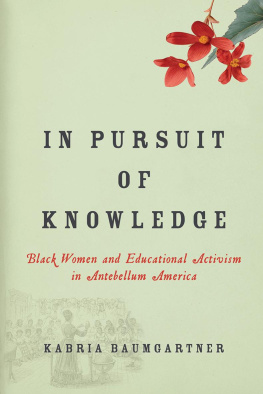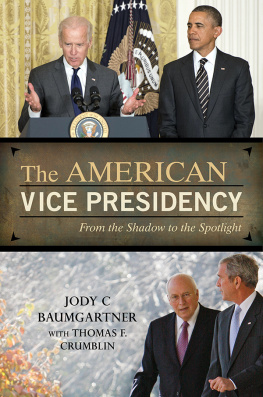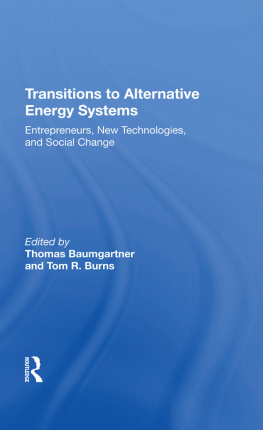BRYAN D. JONES holds the J. J. Pickle Chair in Congressional Studies in the Department of Government at the University of Texas at Austin. FRANK R. BAUMGARTNER is the Bruce R. Miller and Dean D. LaVigne Professor of Political Science at the Pennsylvania State University.
The University of Chicago Press, Chicago 60637
The University of Chicago Press, Ltd., London
1993, 2009 by The University of Chicago
All rights reserved. Published 2009
Printed in the United States of America
18 17 16 15 14 13 12 11 10 09 1 2 3 4 5
ISBN-13: 978-0-226-03947-3 (cloth)
ISBN-13: 978-0-226-03949-7 (paper)
ISBN-13: 978-0-226-03953-4 (ebook)
ISBN-10: 0-226-03947-1 (cloth)
ISBN-10: 0-226-03949-8 (paper)
Library of Congress Cataloging-in-Publication Data
Baumgartner, Frank R., 1958-
Agendas and instability in American politics / Frank R. Baumgartner and Bryan D. Jones.2nd ed.
p. cm.(Chicago studies in American politics)
Includes bibliographical references and index.
ISBN-13: 978-0-226-03947-3 (cloth : alk. paper)
ISBN-13: 978-0-226-03949-7 (pbk. : alk. paper)
ISBN-10: 0-226-03947-1 (cloth : alk. paper)
ISBN-10: 0-226-03949-8 (pbk. : alk. paper) 1. Political planningUnited States. 2. Policy sciences. 3. United StatesPolitics and government. I. Jones, Bryan D. II. Title. III. Series.
JK468.P64B38 2009
320.60973dc22
2008041084

The paper used in this publication meets the minimum requirements of the American National Standard for Information SciencesPermanence of Paper for Printed Library Materials, ANSI Z39.481992.
AGENDAS AND INSTABILITY IN AMERICAN POLITICS
SECOND EDITION
Frank R. Baumgartner and Bryan D. Jones
The University of Chicago Press
Chicago and London
Chicago Studies in American Politics
A series edited by Benjamin I. Page, Susan Herbst,
Lawrence R. Jacobs, and James Druckman
Illustrations
Figures
Tables
Preface to the Second Edition
We would like to express our gratitude for the contributions of scores of students to the ongoing research projects that we have conducted since this book was originally published. This ranges from the undergraduate students at Texas A&M, the University of Washington, and Penn State who worked on often tedious tasks of constructing the large databases we have developed to the graduate students (some now tenured professors), many of whom have become our collaborators over the years: Jeff Talbert, Jim True, Mike MacLeod, Tracy Sulkin, Sam Workman, Heather Larsen-Price, Ashley Watson, Michelle Wolfe, Josh Sapotichne, Lars Beer Neilson, and Shaun Bevan. Similarly, many colleagues at our home universities and elsewhere have helped tremendously in discussing ideas, contesting them, or in other ways: Jim Stimson, John Padgett, Jeff Berry, Donley Studlar, Beth Leech, John McCarthy, Peter May, and John Wilkerson. In recent years, we have forged a set of collaborations with colleagues in European universities who have extended and enriched our initial insights developed in pluralistic America to other western democracies. In particular Christoffer Green-Pedersen of Aarhus University in Denmark first saw the benefits of extending our perspectives and measurement strategies to other nations. Finally, we would like to acknowledge the support of Frank Scioli and the Political Science Program of the National Science Foundation, and to our University of Chicago editor over the years, John Trynseki.
Preface to the First Edition
From the beginning of this project in 1988, our ambition has been to write a theoretically based book that would discuss a range of issues quantitatively and comparatively over far longer periods of time than is current practice in political science. Nevertheless, the necessity of serial processing dictated that we began with one issue. In 1988, Texas A&Ms Center for Energy and Mineral Resources funded our analysis of the nuclear power industry. That was a sobering experience. We were quickly reminded of the old adage Fools rush in where angels fear to tread. For us, it was extraordinarily difficult to understand the major issues in the policies we chose and to compare those issues on the indicators we developed. For over two years, we gathered and coded data, simultaneously trying to comprehend the particulars of the policies we had chosen to study and to find ways to compare across issues and over time. We read books and stacks of articles on nuclear power, pesticides, smoking, child abuse, and all the other issues discussed here. Each of us knows many more details and factoids concerning these issues than any normal person would probably be willing to admit. During this time, we also supervised the creation of some very large data files. Readers of will appreciate our fears during that time that we might simply drown under the weight of it all.
We have been fortunate to have a number of able graduate assistants, however, who have kept the project running smoothly so that we could focus more on the analysis and on refining the intellectual framework. These research assistants include Steven Babalola, Doug Jones, Susanne Marrs, Charles McLemore, William Mitchell, Billy Hall, and Jeff Talbert. Billy Hall and Jeff Talbert remained on to the end and merit particular mention for herculean tasks well performed. Talbert did more than code and collect data, but helped supervise the others and helped develop the methods we report here. His own masters thesis also pushed the approach we developed a bit further.
Since 1989 we have presented papers at a number of conferences based on initial findings from this project. We have benefited from numerous comments from a variety of scholars, most of which, we are happy to report, were helpful, encouraging, and constructive. This was particularly useful, given the strange formulations some of our earlier drafts included. At one conference in Italy, our ideas seem to have been met with something approaching bewilderment, but we like to think that was due to the Alabama accent particular to one of us and the penchant for mumbling that characterizes the other. Less helpful was the rejection of one of our papers after being solicited for an edited volume. That was when we knew we had something important to say. The only trick was to say it in a way that others could understand.
Among those who have provided helpful comments based on those preliminary papers are Jim Anderson, Jeff Berry, Jon Bond, Chris Bosso, Bob Boynton, Roger Cobb, Charles Elder, Jeff Henig, Luigi Graziano, Dave King, Laury King, John Nelson, Jeremy Richardson, Bert Rockman, Bob Salisbury, Mark Schneider, and the late Jack Walker. Each of these people read parts of the book, discussed it with us, and helped us improve it. As is usual in our profession, these people took a lot of time for no reward except intellectual curiosity and these words; we greatly appreciate it. is a revised version of our Agenda Dynamics and Policy Subsystems, published in the Journal of Politics in 1991. Several anonymous reviewers also gave useful comments.
Three individuals read the entire manuscript very carefully and provided the best set of reviews either of us has ever seen. They focused clearly on the intellectual questions, pushing us to take our ideas about the American political system to a higher plane. These reviews were not only professional and conscientious, but they provided real intellectual challenges. We hope our last revisions and improvements to the manuscript meet at least some of the challenges offered us by Charles O. Jones, John Kingdon, and Clarence Stone.
 The paper used in this publication meets the minimum requirements of the American National Standard for Information SciencesPermanence of Paper for Printed Library Materials, ANSI Z39.481992.
The paper used in this publication meets the minimum requirements of the American National Standard for Information SciencesPermanence of Paper for Printed Library Materials, ANSI Z39.481992.








![Stefan Baumgartner [Stefan Baumgartner] - Front-End Tooling with Gulp, Bower, and Yeoman](/uploads/posts/book/120519/thumbs/stefan-baumgartner-stefan-baumgartner-front-end.jpg)
